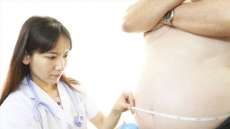The sexual behaviour of teenaged girls does not appear to be impacted by the human papilloma virus (HPV) vaccine, according to Canadian researchers.
There are concerns that the vaccine, which guards against cervical cancer, may give girls a false sense of security about contracting sexually transmitted infections (STIs) and lead them to engage in riskier sexual activity.
"Our findings suggest that fears of increased risky sexual behaviour following HPV vaccination are unwarranted and should not be a barrier to vaccinating at a young age," said lead author Leah Smith from McGill University in Canada.
The team looked at a cohort of 260,493 girls, of whom about half (128,712) were eligible for Ontario's school-based HPV vaccination programme.
The researchers followed the girls until their 12th grade.
About six percent of the girls became pregnant or contracted sexually transmitted infection between grades 10 and 12, with 10,187 pregnancies and 6,259 cases of non-HPV related sexually transmitted infections (STI).
"Neither HPV vaccination nor programme eligibility increased the risk of pregnancy or non-HPV related STIs among females aged 14-17 years," added senior author Linda Levesque from Queen's University.
Since 2006, the HPV vaccine has been licensed in almost 100 countries.
The research paper was published in the Canadian Medical Association Journal.





